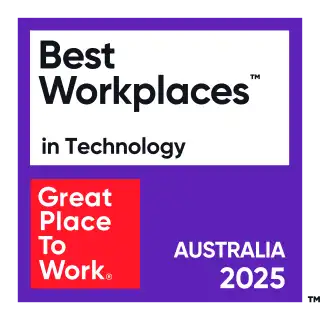Ever heard of the OutSystems Ladder? During the recent OutSystems ONE conference in Amsterdam, Ossama Ghanem, Senior Tech Lead and OutSystems MVP at PhoenixDX, took the stage to guide developers on an immersive growth journey. This session, titled “Climbing the OutSystems Ladder: From Skeptic to MVP,” introduced attendees to a powerful roadmap for advancing in the OutSystems ecosystem.
The OutSystems Ladder is a structured framework that outlines a developer’s journey from scepticism to becoming an influential community leader. Each step of the ladder represents a pivotal stage in a developer’s evolution—whether they are just starting out or are already familiar with the platform. In this article, we break down the key ideas shared by Ossama at the conference, providing insight into how developers can start their climb.

The Heart of the OutSystems Community
The OutSystems community is the foundation of everything developers do—it’s the glue that keeps everyone connected and growing. With over 800,000 members, including over 200 advocates (MVPs and champions), the community is a resource that supports everyone from newcomers to experts. Ossama emphasised the value of the community as the “beating heart” of the OutSystems ecosystem, enabling developers to grow and learn from each other.
For those who may feel overwhelmed by the abundance of resources—like forums, articles, user groups, and the Forge—Ossama laid out a practical guide on navigating and using the community resources effectively. He acknowledged that the community can seem daunting at first, but by taking steps, developers can unlock an incredible source of support and growth.
The OutSystems Ladder: A Four-Step Framework
The OutSystems Ladder provides a clear path for developers, categorised into four distinct stages. Here’s how Ossama described each step:
- Sceptic: Most developers start as sceptics—unsure if OutSystems can deliver on its promises. Ossama shared his own journey from Java developer to OutSystems enthusiast. When OutSystems first came onto his radar, he was naturally sceptical—how could it really replace everything he had learned over the years with Java? However, he soon realised the platform’s power and how it could simplify many of the tasks he’d previously thought were complex. Overcoming scepticism often means diving into customer stories and seeing firsthand how OutSystems has been used to solve real-world challenges. Ossama emphasised that reading success stories from real clients is one of the most effective ways to understand OutSystems’ impact.
- Curious: Once the initial doubts are cleared, curiosity takes over. Ossama encouraged developers to build something personally meaningful rather than just generic projects. He shared a story of how, in 2015, he created a web app to track statistics for his favourite FIFA game—which kept him motivated and helped him truly understand the platform’s potential. At this stage, developers should also explore OutSystems’ guided learning paths. These paths are tailored to help developers become proficient in different areas—whether web development, mobile development, or front-end specialisation. Ossama also highlighted the importance of user groups, which can help keep developers engaged and connected with the wider community.
- Enthusiast: When developers become enthusiasts, they want to push their skills further and explore how to make the most of OutSystems. Staying up to date with product updates, engaging with Forge components, and tackling creative challenges are all crucial to maintaining enthusiasm. Ossama spoke about the importance of building a portfolio—something that showcases your work and demonstrates your growing mastery of the platform. He also mentioned the value of sharing knowledge with the community by publishing Forge components and applying for the “Trusted Badge.” This badge signifies adherence to OutSystems’ best practices and helps build credibility within the community.
- Advocate: Becoming an advocate means giving back to the community. This could mean writing articles, speaking at events, mentoring other developers, or contributing to podcasts. Advocates also help shape OutSystems’ future through feedback and participating in research programs. Ossama highlighted the value of sharing experiences, not just from a technical perspective, but also in helping others navigate challenges that they faced along the way.
Sharing his experience climbing the OutSystems Ladder aims to guide developers through these stages and help them become influential contributors to the community. Ossama made it clear that being an advocate isn’t just about recognition—it’s about contributing to the greater good of the developer community and helping others on their journey.
The PhoenixDX Formula for Successful OutSystems Teams
Ossama also introduced the audience to the PhoenixDX formula for building successful OutSystems teams. At PhoenixDX, we take a strategic approach to career growth—one we call “career train stops.” This model allows developers to move between different paths as we grow, giving them visibility and support to shape their careers.
PhoenixDX’s “career train stops” are modelled after a subway map, where different roles intersect and allow for changes in focus—for example, moving from a developer role to technical leadership or solution architecture. This approach is designed to give team members clarity on how we can grow within the organisation and take charge of their career progression.
The formula also emphasises the importance of individualised growth plans tailored to each team member’s aspirations and skills. Ossama talked about how mentorship—both technical and soft skills—is critical to helping developers evolve into technical leads and influential leaders. He stressed that technical excellence alone isn’t enough—developers also need consultative skills, team management abilities, and a deep understanding of solution architecture to become successful tech leads.
PhoenixDX’s success is evident in our ranking as the fourth Best Place to Work in Australia’s tech sector. We also have the highest number of OutSystems MVPs (6 MVPs, 3 trainers) in one organisation globally. The focus on career development and community contribution has created an environment that fosters both individual growth and collective success.
Community Contributions and Staying Involved
Community contributions are another critical part of what PhoenixDX does. For instance, DX Dev Digest is a consolidation of tips, articles, and videos that share the team’s technical experiences. It serves as a valuable resource for developers looking to learn from real-world challenges.
PhoenixDX also leads the OutSystems User Group for Australia—East Coast, organising events every one to two months. These user groups are tailored to address relevant topics, such as technical debt, AI, security, best practices and integration. Ossama emphasised that staying involved in user groups is one of the best ways to continue learning and growing as an OutSystems developer.
A Call to Action for Aspiring Developers
Whether you are at the start of your OutSystems journey or are already immersed in the ecosystem, the OutSystems Ladder provides a roadmap for growth. Take advantage of the wealth of knowledge the community has to offer—from guided paths and user groups to engaging with advocates.
Ready to take your next step? Sign up for the Dev Digest to receive regular insights and tips from experienced OutSystems developers. Want to see Ossama’s full presentation? Watch the video now and start climbing the OutSystems Ladder today.
About the Speaker
Ossama Ghanem is a Senior Tech Lead at PhoenixDX and an OutSystems MVP, Trainer, and Ambassador. He has over a decade of experience in the tech industry. He holds a Bachelor’s degree in Information and Communication Technology, specialising in Software Engineering, from the University of Technology, Sydney.







